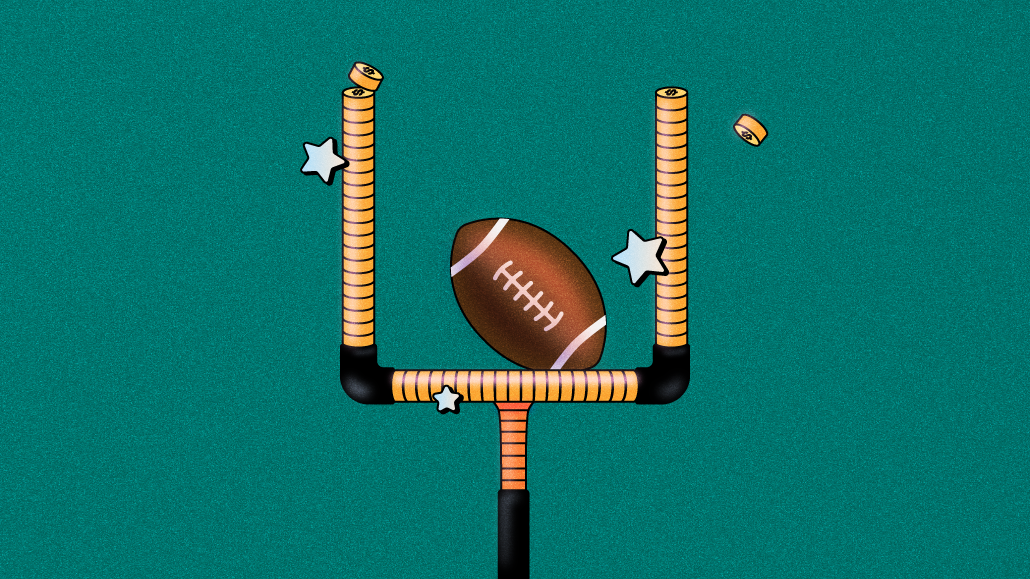Secure your place at the Digiday Media Buying Summit in Nashville, March 2-4
Ford, Kia and Carvana partner with NRG as it walks the line between casual and competitive gaming inventory

During a time in which esports organizations are increasingly siloing themselves within either the competitive or casual side of gaming, NRG has found it pays off to have a hand in both.
The last few months have been the esports organization’s busiest ever, from a sponsorship perspective. On Sept. 25, NRG announced a partnership with Carvana rooted in the game “Rocket League.” On Oct. 10, it kicked off a partnership with Ford centered around the NRG-owned YouTube channel Full Squad Gaming. And on Oct. 12, NRG signed a jersey logo partnership with Kia America.
NRG’s recent run of partnerships demonstrates how the organization’s investments in both the casual and competitive aspects of the gaming community have succeeded in attracting brands’ attention — and their all-important marketing dollars.
For example, the Full Squad Gaming partnership was explicitly rooted in casual gaming, culminating in an activation at TwitchCon North America. On the other hand, NRG was able to sign its Kia partnership on the back of its successful run to the “League of Legends” World Championship this year, and the Carvana partnership was helped along by NRG’s championship-winning success in “Rocket League” as well.
“Our performance definitely helped,” said NRG CEO Andy Miller. “They loved us, when they were considering who to pick and looking over the 10 teams in North America.”
These days, brands and marketers are more informed than ever about the nuances of the gaming audience, and they usually come to inventory holders such as esports organizations with a firm idea of how they want to engage with gamers. For this reason, NRG has found that it makes sense to have offerings on both sides of the casual/competitive fence.
“It felt, right off the bat, that esports was limited,” Miller said. “Over the last year or so, it was a dirty word for a little while, and now it’s coming back. But it was just limited inventory — games come and go, streamers come and go. So we felt that we needed something that wasn’t about any particular gaming or any community, that was broad enough to just encompass the gamer.”
Miller told Digiday that brands are “without a doubt” becoming more interested in casual gaming, after years of using esports as their primary entry point to the gaming community. This certainly lines up with Ford’s changing approach to gaming. In past years, the automobile brand has partnered with dedicated esports companies such as Tribe Gaming and the “Rocket League” Championship Series, but it views its sponsorship of NRG’s Full Squad Gaming as more of a broad-appeal move.
“We’re looking to reach a mass audience,” said Ford sponsorships and partnerships manager Scott Denby. “It’s not to say that esports isn’t something that we continually look at, because it is. But for us, right now, working with a group like Full Squad hits all the marks, from a brand perspective.”
In spite of brands’ trend toward casual gaming inventory, NRG has no plans to move away from esports in the near future. The organization’s successful season in “League of Legends” shows how its ongoing investments in competitive gaming, which included NRG’s acquisition of CLG’s “League” team earlier this year, are paying off in the form of new and attractive inventory, such as NRG’s presence at this year’s World Championship.
“When we look at partners, it’s like, are they open to the creativity and storytelling? Or are they looking for a jersey patch and the more standard things?” said NRG vp of sales and brand partnerships Brandon Tortora. “And there’s nothing wrong with that. We’re carrying 14 to 15 other brand partners right now, a lot of them heavily dedicated to esports.”
More in Marketing

Future of Marketing Briefing: AI’s branding problem is why marketers keep it off the label
The reputational downside is clearer than the branding upside, which makes discretion the safer strategy.

While holdcos build ‘death stars of content,’ indie creative agencies take alternative routes
Indie agencies and the holding company sector were once bound together. The Super Bowl and WPP’s latest remodeling plans show they’re heading in different directions.

How Boll & Branch leverages AI for operational and creative tasks
Boll & Branch first and foremost uses AI to manage workflows across teams.








